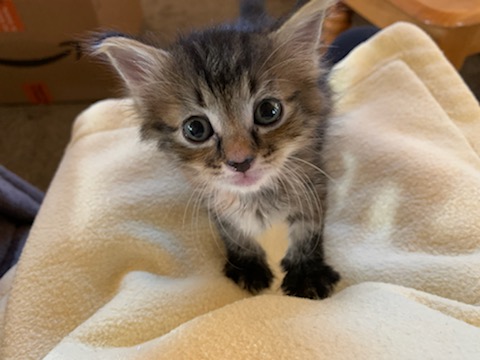Promoting cats on campus – Chaminade Silversword
[ad_1]
Dr. Gail Grabowsky, Dean of the School of Natural Sciences & Mathematics, is developing a program to reduce the wildcat population on the Chaminade University campus. The Compassionate Cat Grooming and Reduction Project enables students, staff and faculty to care for and adopt cats.
She started this program after noticing an increase in wild cats on campus. This program enables a humane approach to cat removal by capturing, neutering, and preparing cats to be cared for and adopted with the help of volunteers from the campus and the Hawaii Humane Society. So far, since the test started in spring 2021, the program has removed 31 kittens from campus and neutered 11 free-roaming adults.
Wild cats have a significant impact on native species in Hawaii and other islands. Hawaii is known as the world capital of extinction and this is mainly due to invasive species like wild cats. In New Zealand, wild cats eat endangered birds, and in Hawaii, their droppings can cause toxoplasmosis, which is fatal to monk seals if they enter the water. A common method of controlling wild cat populations in New Zealand is euthanization, which Grabowsky seeks to prevent and which the Hawaii Humane Society does not provide for healthy free-range cats.
Volunteering in the project enables students to gain research experience and non-profit hours. Some of the tasks that participants can help with include washing, catching, taking photos, socializing, and working with the technology to track the cats. Socializing captured kittens means playing with them to get them used to people so that they will have a smoother transition when they are adopted because they are no longer afraid of people and therefore make good pets.
Faith Chang is a junior business major who is volunteering for the program. She chose to volunteer because she recently adopted her dog from the Hawaii Humane Society. Before she lived with Chang, her dog lived on the street. Chang said she joined to help animals like her dog that come off the street and put them in homes that will enable them to have better lives.
“My favorite part about volunteering is just playing with the foster kids and seeing them grow each week and knowing that I can help the cats get ready for a family, and I can help the cats get one Loving family to be adopted on the day, â€said Chang, who lives in Kunia.
The project will also be the first in Hawaii to use an app to better track the cats on campus and across the island. An app called ArcGIS Collector helps collect field data on cat colonies on Oahu. To keep track of them, teams of volunteer cat counters walk along transect trails set by the Humane Society and record in the app where there have been free roaming cat sightings. This will create a map of potential cat colonies and generate the first Oahu cat count data for the Humane Society and the National Oceanic and Atmospheric Association.
“It is so instructive to count the cats, to take pictures of the cats, to learn what it takes to raise an animal, to count the cats in the community for the good of the community,” said Grabowsky. “It’s all very instructive for you [the students]. “
Grabowsky said the Covid-19 pandemic isolation program was a form of “cat therapy†for students caring for kittens off-campus.
Jode Samire, a junior economics student, took care of cats with her roommate Izzie Krupa for over a year as part of the program and even adopted one of the four cats they cared for. Samire had never owned a cat before caring for the cats but said she enjoyed the experience.
“It’s just so nice to have cats with you during mid-term exams and other stressful times,” she said. “I never knew how beautiful it could be.”
The Compassionate Cat Care and Reduction Project welcomes volunteers, carers, cat counters, and adoptive parents for the cats. Anyone who would like to get involved can contact Grabowsky by email [email protected]
[ad_2]


Comments are closed.